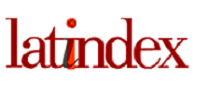Trevisan portraits Trevisan in Pai, Pai: hybridism in the autobiographical novel
DOI:
https://doi.org/10.5216/sig.v33.68140Keywords:
Hybridism, João Silvério Trevisan, Pai, pai, Autobiographical novelAbstract
The autobiographical novel on its own terms is a sort of transgression of what one understands as fiction. By drawing upon places, people and even true events inserted into literary productions, the autobiographical novel ends up creating narratives and novels of the self. Consequently, the blur between reality and fiction brings to the fore not only hybridism but also fragmentation. By analyzing João Silvério Trevisan’s Pai, pai (2017) taking as theoretical framework Samoyault’s (2008), Watt’s (2010) and Lejeune’s (2008) contributions, the findings of this research highlight how difficult it is to label that genre as well as the legitimacy of its free form, in other words, its fragmented feature.
Downloads
References
BOOTH, Wayne. Retórica da ficção. Lisboa: Arcádia, 1980
CORTÁZAR, Julio. Valise de Cronópio. São Paulo: Perspectiva, 1974.
DOUBROVSKY, Serge. “O último eu”. In: NORONHA, Jovita Maria Gerheim (Org.). Ensaios sobre a autoficção. Belo Horizonte: Editora UFMG, 2014.
GENETTE, Gérard. Figuras III. São Paulo: Liberdade, 2017.
LEJEUNE, Philippe. O pacto autobiográfico. Belo Horizonte: UFMG, 2008.
REUTER, Yves. A análise da narrativa: o texto, a ficção e a narração. Tradução Mario Pontes. 4ª ed. Rio de Janeiro. DIFEL, 2014.
RICHARDSON, Brian. Unnatural Voices: extreme narration in modern and contemporary fiction. Columbus, The Ohio State University Press, 2006.
SAMOYAULT, Tiphaine. A intertextualidade. Tradução de Sandra Nitrini. São Paulo. Aderaldo & Rothschild, 2008.
TREVISAN, João Silvério. Pai, pai. 1ª ed. Rio de Janeiro. Alfaguara. 2017.
WATT, Ian. A ascensão do romance: estudos sobre Defoe, Richardson e Fielding. São Paulo. Companhia das Letras, 2010.
Downloads
Published
How to Cite
Issue
Section
License
Copyright (c) 2021 Signótica

This work is licensed under a Creative Commons Attribution-ShareAlike 4.0 International License.
Author (s) authorize Signótica to publish an article, if accepted, signing its contribution as original and not submitted to another publisher for publication. In case of acceptance and publication, Signótica's articles are Creative Comons BY-NC-ND (Attribution + Non-Commercial + Non-Derivatives)




1.png)





